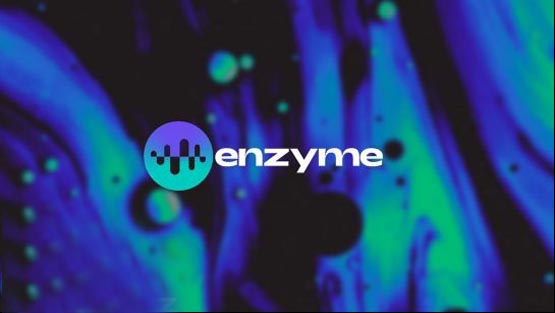$24.03 ≈ ¥174.36

According to the editor’s investigation, the issuance price of MLN coin is US$5.8005, and the issuance time is February 2017 On March 15, the total issuance amount was 1.8244 million pieces, the circulation volume was 1.3484 million pieces, and the circulation rate was 73.91%.
MLN is an Ethereum token that powers Enzyme (formerly Melon Protocol), a protocol designed to facilitate on-chain asset management in the DeFi ecosystem. MLN allows users to build, share and explore DeFi investment strategies (called “vaults”) while filtering by historical performance and risk profile. MLN is used to pay for various functions throughout the vault creation process and investment lifecycle.
The Melon platform automates many operations through smart contracts, effectively reducing the fixed costs of managing investment portfolios. On the Melon platform, the performance of investment managers can be effectively tracked, making it easier for outstanding investment managers to stand out. In addition to asset managers, developers can also participate in the Melon project. The Melon protocol consists of two parts, Melon core and Melon module. Melon core is implemented by a set of smart contracts and is the cornerstone of the Melon platform. It cannot be changed by users and can be regarded as the trading rules agreed by users on the Melon platform. Melon modules are a wide range of custom tools for managers to choose from. Developers can develop Melon modules for managers to use. The more useful the module is, the more incentives it will receive.
The Melon platform brings asset managers, developers, and token holders together to make the goals of the three parties consistent to the greatest extent possible and achieve efficient and low-cost digital asset management. The MLN token is a utility token that powers the ecosystem and aligns stakeholders. The tokens serve two purposes: Users pay for the use of MLN tokens. Developers or external contributors can earn MLN tokens by submitting grants.
Enzyme Finance, formerly known as the Melon protocol, is an on-chain asset management protocol that aims to enable participants to establish, manage and invest in technology-regulated investment funds in a way that reduces barriers to entry while minimizing the number of trust. It works by leveraging distributed quasi-Turing-complete digital assets that are supported only by smart contract code and operate only according to pre-programmed rules in that code. These rules are designed to protect investors and fund managers from malicious behavior by each other, even when both parties maintain confidentiality. The project has been under construction since 2017. Enzyme launched the V2 version in early 2021, supporting more than 180 assets, adding an AMM pool that can be used in investment portfolios, short selling and liquidity mining, etc.
Enzyme will launch a new DeFi product Sulu in the near future, with 9 major upgrade plans, including: increasing borrowings (previously only loans), tokenized transfer of portfolio (Vault) shares, integrating AAVE/Balancer and other major DeFi Agreement, and will be able to inherit their mining and compensate the portfolio manager for certain transaction fees (on-chain). On December 16, 2020, the decentralized asset management protocol Melon Protocol (MLN) announced that it had officially changed its name to Enzyme Finance.
The above is the detailed content of What is the issuance price of MLN coins? Introduction to MLN coin issuance price and issuance time. For more information, please follow other related articles on the PHP Chinese website!
 How to become a close friend on TikTok
How to become a close friend on TikTok
 How to set up Douyin to prevent everyone from viewing the work
How to set up Douyin to prevent everyone from viewing the work
 Introduction to common commands of postgresql
Introduction to common commands of postgresql
 transactionscope usage
transactionscope usage
 How to check for plagiarism on CNKI Detailed steps for checking for plagiarism on CNKI
How to check for plagiarism on CNKI Detailed steps for checking for plagiarism on CNKI
 What does the metaverse concept mean?
What does the metaverse concept mean?
 ASCII code comparison table
ASCII code comparison table
 How to open python after it is installed
How to open python after it is installed




